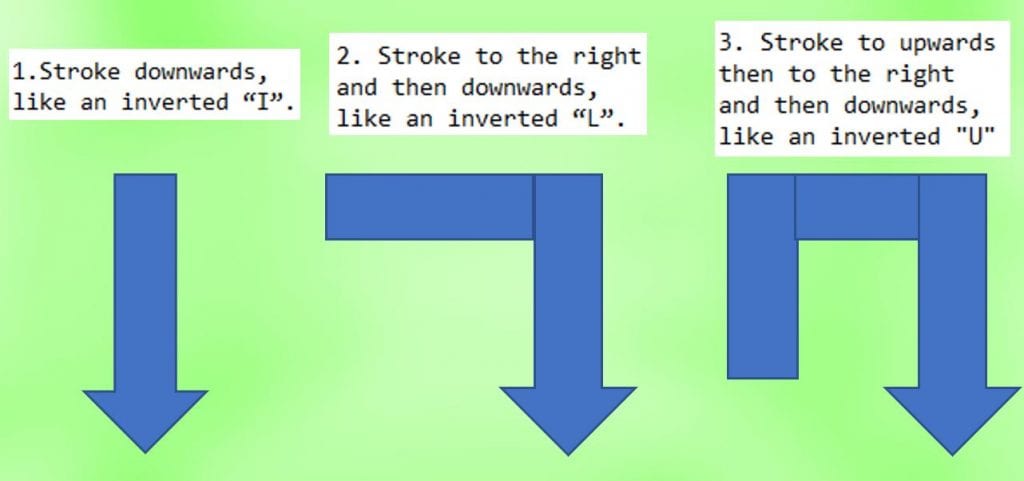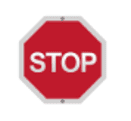 A time-honored childcare practice in many cultures around the world, find out how massaging your baby can soothe almost every ill and ache that causes your little one to cry… and help them become healthier and happier.
A time-honored childcare practice in many cultures around the world, find out how massaging your baby can soothe almost every ill and ache that causes your little one to cry… and help them become healthier and happier.
Let’s start with the all-too-familiar story of two mothers helping soothe their little one’s first bout of colds…
It’s late at night. There’s a mom in America right now, scrolling past Google results on her phone, looking worriedly at her baby finally asleep after a full 5 hours of on and off crying and general fussiness, her baby’s tiny nose all red and stuffed up and chubby cheeks flushed pink as she is experiencing her first bout of colds.
She might find a hundred different results online telling her what to do, what not to do, when to worry and when to take her baby to the doctor. She’ll find a few bits and pieces of advice that are helpful and maybe an article or two that will tell her how to deal with her sick baby but it still doesn’t completely ease her worries. She sees an article on baby massages but she’s not so sure. She’s never done it before. Something about essential oils, too? She checks out a few more articles until she feels very drowsy.
“I’ll take her to the doctor tomorrow,” will be her last thought as she drifts off to sleep, well aware that she’ll be up again in a few hours.
Meanwhile in another part of the world:
The sun just rose in Southeast Asia. Somewhere in a quiet, rural town, there’s another young mother whose baby is also having the sniffles for the first time in his young life. She is calmly preparing for a quick morning massage session for her baby which she learned from her mother. The baby, also quite fussy, is in the crib fresh from a warm bath.
Wrapped up in a towel, she carries him to the bed where she gently massages the baby’s chest area, front and back in gentle, rotating motions with a bit of home-made massage oil while softly humming a lullaby. She concludes her baby’s massage with some quick strokes at the forehead and towards the nostrils.
Her baby, now visibly calmer, is ready and relaxed for his morning nap. Although she openly embraces the traditional ways of soothing her baby, she also knows that her baby may need to be taken to the doctor if the colds persist. She’ll wait and see in two to three days. For the moment, her baby is calm and feeling better; that is what’s most important. She herself grew up being given regular massages. Massages, as far she has known, were weaved into the fabric of her everyday life.
The two moms discussed above are from different parts of the globe, both worried about their baby’s first colds and both doing the very best they can to soothe their little ones. One is not better than the other, of course. Both are simply finding ways to make their babies feel better based on what they know.
Their stories simply illustrate that while Western parents do not tend to instinctually look to baby massages as a way to soothe their baby through common illnesses, baby massages are often practiced by mothers in other parts of the world taught to them by their mothers and grandmothers before them.
Have Baby Massages Grown More Popular in America?
While it’s still not considered part of mainstream childcare, Western parents have certainly caught on with baby massaging. And not just with baby massaging; recent years have shown a growing popularity in alternative remedies for soothing common ails of babies that cause them to cry unconsolably.
From colic to constipation, many moms and dads from recent generations have looked to natural healing methods such as infant massages that they learn to do themselves or with the help of licensed massage therapists. Luckily, new parents have a wealth of resources available; from books to YouTube tutorials, baby massages are definitely possible to learn at home. Some parents may also be advised to seek help from certified pediatric massage therapist if their baby has a more serious medical condition that requires touch therapy as treatment.
Here’s some reasons why the modern momma has embraced the traditional practice of massaging babies:
- Doctors and birthing experts themselves encourage developing a bond between mother and child immediately after birth. In fact, skin-to-skin contact is encouraged within the first hour of the baby’s life on earth. Studies show that babies who are held earlier and touched more often cry less and have fewer health issues. Massaging newborns can help regulate heart rate and breathing as well as increase the mother’s relaxation hormones.
- Modern studies show that touch simply helps babies thrive. This is because the sense of touch is the most developed sense in a newborn baby. The moment you give birth, nurses and doctors will encourage you to hold your newborn baby as much as you can.
- Holistic and natural parenting is a growing trend that doesn’t seem to be going away anytime soon. In light of news outlets reporting about harmful chemicals in our food and some over-the-counter medicines, holistic and natural methods of parenting have been a growing trend among moms and dads who want to raise children in a natural, chemical-free environment. Massaging babies from birth up to school-age is simply a more holistic approach to calming and soothing their little ones.
- Modern society’s general openness and acceptance of alternative forms of treatment and therapy. Long gone are the days of strict traditional ways of soothing babies. As time has passed, parents nowadays simply do what feels safe and best for their children. Due to modern medicine, available resources and the world’s more accepting nature of how to raise children, parents are happy to combine both modern and traditional ways of soothing their child.
To conclude this section, let’s say a mom has recently given birth to a preemie. How can a quick massage help a preemie with gas problems?
Preemies are generally gassy and have challenges with pooping. It’s hard for parents to see their tiny preemie, just brought home from the NICU, his little face all red with the effort of passing his bowels. A quick massage can definitely help.
The I Love You Massage, developed by Vimala McClure, is a tried and tested natural solution for babies with constipation. The preemie mom may first want to try the I Love You Massage before consulting preemie’s neonatal pediatrician or perhaps consult the doctor first, follow the doctor’s orders and then also try the I Love You Massage at home. Either way, a combination of both following what the doctor prescribes + home massages may help the preemie baby have an easier time going Number Two.
Here’s A Quick How-To Of The I Love You Massage:

Follow these simple strokes on your baby’s abdomen. A bit of baby-safe massage oil should help make the baby feel more relaxed but it’s not necessary. If you plan to use massage oils, please ensure it is natural, chemical-free and not harmful to your baby. Remember to massage your baby when she is rested and relaxed. Apply only mild to medium pressure. It’s best to try this before bedtime. The next day, your baby should be able to poop easily. However, we will always recommend for you to please consult your physician at all times.
Vimala McClure & A Quick History About How Baby Massages Were Introduced To The West
Not too long ago, massaging babies wasn’t exactly part of Western childcare customs. However, ever since the internet became more and more accessible, and add social media into the mix, moms, doctors, and child development experts can easily share their childcare stories to the world. Just one quick search on YouTube will return several videos all dedicated to the many wonders of infant massage. Many parents can now see firsthand how effective baby massaging is.
But if Western moms weren’t culturally accustomed to massaging babies, how were baby massages introduced in the first place?
The answer is the amazing Vimala McClure. The founder of the nonprofit IAIM or the International Association of Infant Massage, Vimala spent time in India in 1973. She first witnessed a young mother gently massaging her baby to sleep and Vimala soon learned that Indian women have been massaging tiny infants since time immemorial. Indian women believe that massaging babies help strengthen their musculoskeletal system, stimulate growth and overall development, help improve the immune system, promote relaxation, and encourage the bond to grow between parent and child. Also, Vimala learned, massages simply help babies sleep better!
Vimala came home to the States with her new learnings and wrote the “Infant Massage, A Handbook For Loving Parents”, published in 1978, it is considered a parenting classic and referenced by moms and doctors all over the world. IAIM has now grown to become “the “Gold Standard” for infant massage information, instruction, and training worldwide”.
Vimala is considered one of the pioneers of introducing infant massage concepts to parents in the U.S. You can learn more about her here.
Baby Massages Across The Globe

Across continents, from Russia to Africa, parents and caregivers all share a fascinating history of baby massaging. Mothers all over the world can see and feel that quick massage sessions are highly effective and beneficial to their babies.

Top 8 Reasons Why You Should Start Massaging Your Baby, Too!
We’ve learned, so far, that:
- Massaging babies have numerous benefits and moms all over the world have been practicing it for generations.
- Modern parents can embrace massages and modern medicine to treat babies’ common colds, colic, indigestion, etc. — it all depends on what’s specifically best for the baby at a given time.
Apart from that, there are just so many other amazing reasons WHY you should begin to incorporate massages to your baby’s daily routine. We can think of a hundred reasons and but we’ll settle with the best eight:
1. It’s an amazing, cost-effective way to bond with your baby.
 Massaging your baby is a bonding activity that you can enjoy with your baby anytime of the day. You don’t need expensive toys or playmats that they’ll eventually grow bored of. All you’ll need is a quiet time of the day when the dishes are done and the laundry is kept, some natural massage oils and both you and baby will have a nice, relaxing time. It’s quick, too. Babies do not have the same attention span as adults. While adults love a full hour (or two) of massaging, babies will only need about 10 to 15 minutes (sometimes less). Sing them a sweet lullaby, tickle them a bit, make your little one laugh or smile, do what comes naturally and you’ll form a stronger bond with your little one.
Massaging your baby is a bonding activity that you can enjoy with your baby anytime of the day. You don’t need expensive toys or playmats that they’ll eventually grow bored of. All you’ll need is a quiet time of the day when the dishes are done and the laundry is kept, some natural massage oils and both you and baby will have a nice, relaxing time. It’s quick, too. Babies do not have the same attention span as adults. While adults love a full hour (or two) of massaging, babies will only need about 10 to 15 minutes (sometimes less). Sing them a sweet lullaby, tickle them a bit, make your little one laugh or smile, do what comes naturally and you’ll form a stronger bond with your little one.
2. Better sleep for baby, better sleep for mom and dad.
 When Vimala McClure learned about baby massages in India, she discovered that Indian mothers massage their babies to sleep every night. Granted, it requires practice and experience but it is possible to learn to massage your baby to sleep, too. With or without oil, gentle movements with only the slightest bit of pressure will help your baby drift off to dreamland. Remember to set the mood: dim lights and soothing lullabies should do the trick.
When Vimala McClure learned about baby massages in India, she discovered that Indian mothers massage their babies to sleep every night. Granted, it requires practice and experience but it is possible to learn to massage your baby to sleep, too. With or without oil, gentle movements with only the slightest bit of pressure will help your baby drift off to dreamland. Remember to set the mood: dim lights and soothing lullabies should do the trick.
 Quick FAQ Stop: Should I use massage oils for baby massages? Massage oils are entirely optional and up to you. A baby’s skin is naturally soft and pliable therefore easier to massage. However, massage oils help keep your baby warm, especially if you’re massaging your baby during the colder, winter season. Studies suggest that the best massage oils for babies are food-based such as coconut oil, almond oil and mustard oil. Even olive oil is considered one of the best oils to massage your baby with. Several companies produce relaxing, nighttime massage oils for babies, as well. However, beware of chemicals and alcohol-based massage oils as these can be harmful to your baby’s skin or, sometimes, may be inhaled or absorbed. If you plan to use massage oils for your baby, please consult your physician to ensure your baby’s safety.
Quick FAQ Stop: Should I use massage oils for baby massages? Massage oils are entirely optional and up to you. A baby’s skin is naturally soft and pliable therefore easier to massage. However, massage oils help keep your baby warm, especially if you’re massaging your baby during the colder, winter season. Studies suggest that the best massage oils for babies are food-based such as coconut oil, almond oil and mustard oil. Even olive oil is considered one of the best oils to massage your baby with. Several companies produce relaxing, nighttime massage oils for babies, as well. However, beware of chemicals and alcohol-based massage oils as these can be harmful to your baby’s skin or, sometimes, may be inhaled or absorbed. If you plan to use massage oils for your baby, please consult your physician to ensure your baby’s safety.
3. Helps pre-term babies gain weight effectively.
 According to study by Dr. Tiffany Field, PhD. of the Touch Research Institute at the University of Miami School of Medicine, preemies who were massaged regularly were sent home an average of 6 days earlier than preemies who were not massaged. Dr. Field’s study also shows that pre-term babies who were massaged 3 times a day for 15 minutes gained 47% more weight than other preemies who were not massaged at all. Touch really does amazing things! Each day a preemie is in a hospital matters so a full six days early discharge is a God-send to parents. It means cutting back on thousands of dollars in hospital costs. If all preemies in the NICU were massaged, it means happier parents and equates to tons of savings.
According to study by Dr. Tiffany Field, PhD. of the Touch Research Institute at the University of Miami School of Medicine, preemies who were massaged regularly were sent home an average of 6 days earlier than preemies who were not massaged. Dr. Field’s study also shows that pre-term babies who were massaged 3 times a day for 15 minutes gained 47% more weight than other preemies who were not massaged at all. Touch really does amazing things! Each day a preemie is in a hospital matters so a full six days early discharge is a God-send to parents. It means cutting back on thousands of dollars in hospital costs. If all preemies in the NICU were massaged, it means happier parents and equates to tons of savings.
4. Helps mommy relax, too.
 It’s no secret that most moms suffer through postpartum depression after birth. While there are several ways to treat postpartum depression, from as simple as setting aside some time for a cup of coffee with a good friend or to consulting a therapist, one of the simplest and most recommended ways to treat postpartum depression is through baby massages. One study shows that mothers who massage their newborns daily reduced maternal stress significantly. Indeed, massaging your baby doesn’t only calm the baby but calms you, too. Touch is known to release endorphins that make both mom and baby feel safe, secure and loved.
It’s no secret that most moms suffer through postpartum depression after birth. While there are several ways to treat postpartum depression, from as simple as setting aside some time for a cup of coffee with a good friend or to consulting a therapist, one of the simplest and most recommended ways to treat postpartum depression is through baby massages. One study shows that mothers who massage their newborns daily reduced maternal stress significantly. Indeed, massaging your baby doesn’t only calm the baby but calms you, too. Touch is known to release endorphins that make both mom and baby feel safe, secure and loved.
5. Relieves colicky baby’s gas pains naturally.
 This point is discussed briefly in the first part of this article, but massaging your baby to relieve colic is one of motherhood’s best kept secrets that we simply must dedicate a whole paragraph here! Colic can be very stressful not just to the baby but to the parents, as well. It’s also difficult to spot especially to new parents who don’t know what on earth is making their baby cry so bad. This can be a familiar scenario to new parents: Mom and dad have tried every which way to stop the baby’s cries but nothing seems to work – diapers changed, clothes changed a few times, carried this way and held that way, rocked and danced, swaddled and swathed, warm bath, essential oils, everything that parents can think of but baby just doesn’t seem to be happy. Time to take out the sunflower oil you were given during your baby shower and quickly massage your baby’s abdomen and lower back in firm yet gentle strokes. Swaddle your baby and hold him close to your chest and you should be able to hear them expel trapped gas in a few moments. However, as always, trust your instinct. If you feel that your baby needs more than a massage, don’t hesitate to contact your healthcare provider.
This point is discussed briefly in the first part of this article, but massaging your baby to relieve colic is one of motherhood’s best kept secrets that we simply must dedicate a whole paragraph here! Colic can be very stressful not just to the baby but to the parents, as well. It’s also difficult to spot especially to new parents who don’t know what on earth is making their baby cry so bad. This can be a familiar scenario to new parents: Mom and dad have tried every which way to stop the baby’s cries but nothing seems to work – diapers changed, clothes changed a few times, carried this way and held that way, rocked and danced, swaddled and swathed, warm bath, essential oils, everything that parents can think of but baby just doesn’t seem to be happy. Time to take out the sunflower oil you were given during your baby shower and quickly massage your baby’s abdomen and lower back in firm yet gentle strokes. Swaddle your baby and hold him close to your chest and you should be able to hear them expel trapped gas in a few moments. However, as always, trust your instinct. If you feel that your baby needs more than a massage, don’t hesitate to contact your healthcare provider.
6. It’s not all about physical health, massages enhance a baby’s emotional well-being.
 Research shows that babies who are massaged and touched often cry less and are generally happier. According to Johns Hopkins neurologist David Linden’s book, “Touch: The Science of Hand, Heart and Mind”, the best example to show that touch is crucial to a child’s overall development is a study made of the Romanian orphanages during the Fall of Ceaușescu. During this time, orphanages were left so shorthanded that young babies and children were left to fend for themselves. Lacking touch and physical affection, these children suffered greatly. Linden says: “These kids didn’t just have a host of emotional problems — though they were depressed and had high instances of schizophrenia, bipolar disorder, and other issues — but they also had a whole raft of physical ailments. They had weakened immune systems, and skin ailments.” Linden further states that up until today, there is still no confirmed scientific reason why touch seems such an integral part of a baby’s difficult but several studies support this phenomenon: that touch matters to babies as much as it does to adults. The more we touch, the more we massage, the better little boys and girls we raise.
Research shows that babies who are massaged and touched often cry less and are generally happier. According to Johns Hopkins neurologist David Linden’s book, “Touch: The Science of Hand, Heart and Mind”, the best example to show that touch is crucial to a child’s overall development is a study made of the Romanian orphanages during the Fall of Ceaușescu. During this time, orphanages were left so shorthanded that young babies and children were left to fend for themselves. Lacking touch and physical affection, these children suffered greatly. Linden says: “These kids didn’t just have a host of emotional problems — though they were depressed and had high instances of schizophrenia, bipolar disorder, and other issues — but they also had a whole raft of physical ailments. They had weakened immune systems, and skin ailments.” Linden further states that up until today, there is still no confirmed scientific reason why touch seems such an integral part of a baby’s difficult but several studies support this phenomenon: that touch matters to babies as much as it does to adults. The more we touch, the more we massage, the better little boys and girls we raise.
7. Touch enhances a baby’s intelligence and learning.
 Recent research shows that 4-month old babies who are constantly touched and massaged for at least 8 minutes, were more alert and responded better when shown audio-visual learning materials. This reinforces studies that massaged newborns grow to become brighter and happier babies.
Recent research shows that 4-month old babies who are constantly touched and massaged for at least 8 minutes, were more alert and responded better when shown audio-visual learning materials. This reinforces studies that massaged newborns grow to become brighter and happier babies.
8. Massages aid in the treatment and therapy for babies and young children with special needs.
 Young children with ADHD or diagnosed with autism show a favorable response when treated with touch therapy such as massages. Touch therapy helps children with psychiatric disorders cope with the stress of their everyday lives. Young babies and children who have symptoms of sensory processing disorder also show remarkably positive results after massage therapy. However, it’s best to consult your healthcare provider when using touch treatment for a child with special needs as they may sometimes be averse to touch. It’s always best to consult an expert.
Young children with ADHD or diagnosed with autism show a favorable response when treated with touch therapy such as massages. Touch therapy helps children with psychiatric disorders cope with the stress of their everyday lives. Young babies and children who have symptoms of sensory processing disorder also show remarkably positive results after massage therapy. However, it’s best to consult your healthcare provider when using touch treatment for a child with special needs as they may sometimes be averse to touch. It’s always best to consult an expert.
A Few Do’s And Don’ts To Take Away With You Before You Go:
- As much as massages are beneficial for babies, not all babies may like it or are ready for it. Don’t feel frustrated when your baby doesn’t respond to it right away, especially if you have a newborn. Newborns mostly want to be held and feel warm. No surprise! They just spent 9 months cocooned in your tummy. Take your time and follow your baby’s cues.
- If you decide to use massage oils, don’t use massage oils on the face as this may drip into the eyes.
- Head massages are not good for small infants who still have soft, undeveloped part of their skull called the fontanelle. Avoid massaging your baby’s head until they are older and their bodies are more developed.
- Your baby isn’t ready for long, deep massages. This may be great for older children or adults but your baby is only ready for quick, 10-15-minute massages. Sometimes five minutes will do. The bottom line is that should baby get uncomfortable, it’s time for you to stop.
- Baby is slippery after a massage! If you use massage oils, even a little oil can go a long way. After massaging with oils, be careful when picking up your baby. Wrap your baby in a soft blanket to avoid accidentally dropping your baby.
Conclusion
There are many ways to raise happy babies, but the best way is certainly that which is most proven: that parents knows best. And if, as a parent, you’d like to explore ways to make our babies feel better if they are sick or simply uncomfortable, there is certainly nothing wrong with that. Baby massages have been practiced by many parents the world over and have made babies sleep better, feel better and overall, have better physical and emotional health. With a bit of research, practice and commitment, you and your baby can certainly enjoy the benefits of a regular baby massages.
Disclaimer:
This article is for informational purposes only and should not be considered medical advice. Always consult with a doctor or licensed medical professional before making any medical decisions.
Leave a Reply